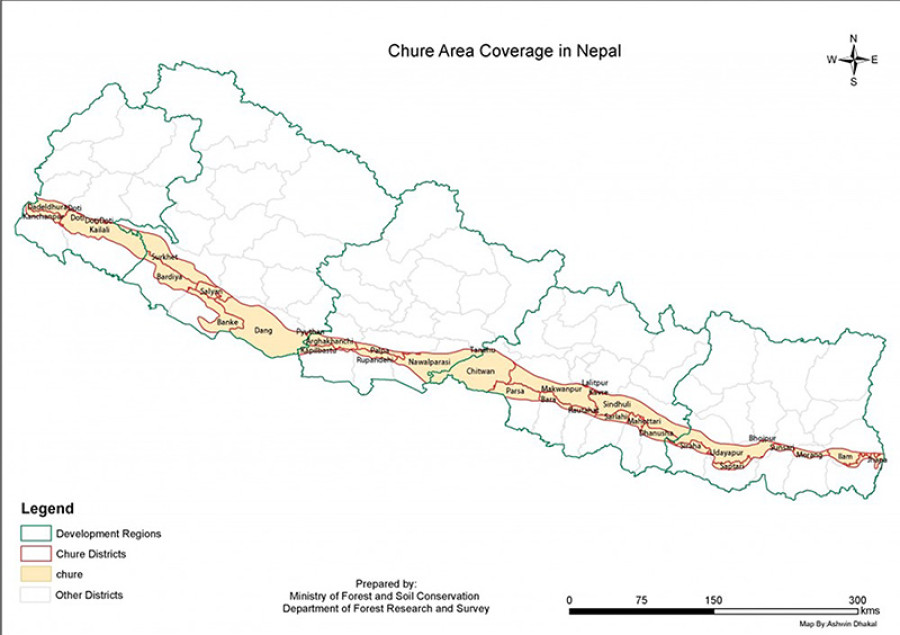National
Chure conservation project seeking funds from non-govt donors
The President Chure-Tarai Madhes Conservation Development Board, which is implementing various projects for the conservation of Chure ranges, has started talks with non-government partners for financial support.
Chandan Kumar Mandal
The President Chure-Tarai Madhes Conservation Development Board, which is implementing various projects for the conservation of Chure ranges, has started talks with non-government partners for financial support.
According to the board’s member-secretary, Hemlal Aryal, they have already initiated talks with various donor agencies to seek funds for the President Chure Conservation Programme (PCCP).
“We have already held positive talks with some donors, including some international organisations and multilateral agencies, on securing support for the programme,” said Aryal.
Initiated in 2010/11 fiscal year, the PCCP is one of the national pride projects, which is aimed at preserving the Chure ranges and conserving the geographic stretch from further degradation. The Chure area covers 12.78 per cent of the total area of the country.
The board is implementing various projects under the President Chure-Tarai Madhes Conservation and Management Master Plan to conserve the area.
According to the master plan, the board can accept financial support for
implementing its projects from donor agencies.
“We are open to work with the donors if they come with programmes that syncs with our goals,” said Aryal.
The board has said that it has also accepted some concept notes from some organisations, interested in working in Chure conservation area.
Already, the PCCP has attracted two organisations that are interested in working in two aspects of climate change— mitigation or emission reduction and adaptation measures, Aryal said.
“We have received some concept papers which express interest on working in climate change mitigation and helping the vulnerable communities. Such ideas also match our targets, as we are also working for improving livelihood of affected communities and restoring the Chure range.”
The Food and Agriculture Organisation has shown interest in helping the board in accessing the Green Climate Fund while Japan International Cooperation Agency has also been positive towards the programme, Aryal added.
Interested organisations can either choose to work in spatial or sectoral area, meaning in a particular geographical area or by selecting any components of the PCCP.
The master plan has identified total 164 rivers in 36 districts of Chure belt, where the board will be working over the years. Currently, the board has been running integrated river system management in 52 rivers.
“While keeping the area open for support, we expect the interested organisations to work by selecting, say, one integrated river system or one area like livelihood improvement, forest conservation, soil erosion protection or farming support,” said Aryal.
The board is already facing budget crunch for executing conservation efforts outlined in its 20-year master plan endorsed earlier in May.
This year the government has allocated Rs 1.91 billion for implementing the PCCP, which is only 20 per cent of the projected annual budget of Rs 10 billion to execute various projects in the first year of the master plan implementation.
Besides relying on donor agencies, the board is also planning to enhance its own capacity to tap its available resources.
“We have to increase our institutional capacity too. Our absorption power has been low. We have been unable to utilise our whole budget. Also, our approach has been minimal in reaching out to potential agencies,” said Aryal.
The board has called on the government to organise a donor’s meeting at the
earliest.




 16.12°C Kathmandu
16.12°C Kathmandu














